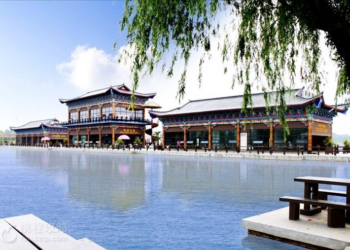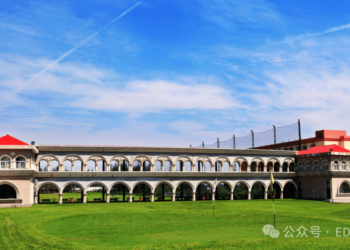By Li Hongyang | China Daily
A subtropical high-pressure system lingering in eastern China will continue to pester the region, making the next 10 days feel like a sauna with high temperatures and high humidity, the National Meteorological Center said on Wednesday.
Heat waves will also remain prevalent and intense, with temperatures in Hunan, Jiangxi, Zhejiang and Fujian provinces expected to climb as high as 40 C.
The sweltering weather is also forecast to persist in central China over the next 10 days.
At the 86 national weather stations located in North China and in the Yellow and Huaihe river regions, extreme heat thresholds had either been reached or exceeded by Monday.
In addition, at 26 national stations, record temperatures had either been reached or exceeded by Monday, according to the China Meteorological Administration. Since June, Beijing has been experiencing record high temperatures.
On Wednesday, a Chongqing transportation company opened cooling areas at 113 metro stations in the city, reporters from local media outlet Shangyou News said. The move has been welcomed by commuters, who have been spending time resting and chatting in the areas.
A resident surnamed Shi told Shangyou that she works as a parking equipment manager and often travels between unshaded parking lots.
“The cooling areas have brought great convenience to me and other outdoor workers,” she said.
Metro stations are also providing commuters with items such as free water to beat the heat.
Other cities are taking a similar approach.
To cope with rising temperatures and an influx of summer tourists, Yantai in Shandong province has equipped community service stations with drinking water, herbal tea and other cooling materials for visitors, deliverymen and sanitation workers, Xinhua News Agency reported on Monday.
Global warming is leading to an increase in extreme temperatures, more intense precipitation and increasing climate risks, said Gao Hui, chief forecaster at the National Climate Center.
He said that the heat wave in the northern parts of the country has been dry, which is typical in June and early July before the rainy season begins.
The World Meteorological Organization reported on July 4 that El Nino conditions have developed in the tropical regions of the Pacific for the first time in seven years, setting the stage for a probable surge in global temperatures, as well as for disruptive weather and climate events.
“El Nino is not the only cause,” Gao said. “Other factors such as sea ice and snow cover are also influencing the climate.”
Source: Heat waves expected to hover in central, east – Chinadaily.com.cn






![[Guangxi], 0 Tuition, 0 Dorm, Bachelor Scholarship](https://news.eduprchina.com/wp-content/uploads/2024/07/南宁1-350x250.jpeg)


























This Post Has 0 Comments